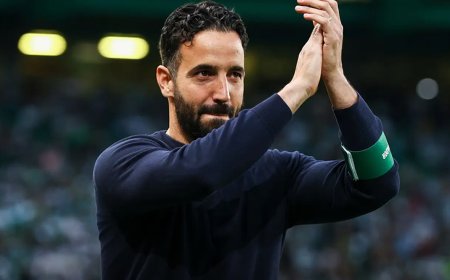Right Man, Wrong Time: Harry Brook Thrust into White-Ball Captaincy Amid England’s White-Ball Decline
In a decision that reflects more desperation than design, the England and Wales Cricket Board (ECB) has officially named Harry Brook as the new captain of the men’s white-ball team—a move that, while not entirely unexpected, comes far sooner than ideal.

In a decision that reflects more desperation than design, the England and Wales Cricket Board (ECB) has officially named Harry Brook as the new captain of the men’s white-ball team—a move that, while not entirely unexpected, comes far sooner than ideal. The announcement, made by England’s managing director Rob Key, was laced with hesitation. "This opportunity has come slightly earlier than expected," Key admitted in a statement that lacked the usual fanfare surrounding leadership appointments.
Brook’s ascension highlights a wider problem plaguing England’s white-ball cricket setup: a lack of proper succession planning since the glory days of their 2019 World Cup triumph. Back then, England were innovators, pioneers of an aggressive white-ball game that had redefined the modern limited-overs format. But since that historic win, England’s white-ball structure has unraveled due to neglect and mismanagement.
Following their T20 World Cup victory in 2022, England became the first men’s team to hold both white-ball ICC trophies simultaneously. However, instead of building upon that momentum, the focus shifted almost entirely to Test cricket, especially under the “Bazball” revolution led by Brendon McCullum and Ben Stokes. This shift left the white-ball system without direction or development.
Brook’s personal track record underscores the issue. Before making his ODI debut in January 2023, he hadn’t played a 50-over match for Yorkshire since May 2019. The story is the same across England’s potential white-ball stars—Jamie Smith, Jordan Cox, Gus Atkinson—all supremely talented, but severely undercooked in 50-over cricket.
In reality, Brook's leadership now isn’t the result of meticulous planning but a product of urgency. England’s failure to rejuvenate their squad post-2019 has forced them into a corner. Even Jos Buttler, the outgoing captain, had become a lone white-ball specialist while his peers focused on Test cricket.
Brook is undoubtedly gifted and passionate, and his spirited leadership against Australia last year offered glimpses of tactical promise. But the burden he now carries is immense. Not only is he tasked with restoring pride to England’s declining white-ball outfit, but he must also manage the physical and mental strain of being a multi-format player.
He is currently the second-ranked Test batter in the world, just behind Joe Root. England’s packed calendar includes five home Tests against India this summer, followed by the high-stakes Ashes series in Australia from November to January. By the time he wraps up his Test duties, he’ll be leading the T20 team into another World Cup campaign.
Brook’s withdrawal from the IPL to "recharge" speaks volumes. England’s new captain is on a treadmill that may not stop until the 2027 ODI World Cup, with limited time for development, mentorship, or error correction.
The harsh truth is that England’s cricket board failed to strike a balance between red and white-ball cricket. Their once-feared white-ball legacy now rests on the shoulders of a young, overburdened, and underprepared captain.
Brook might be the right man—but this is the wrong time.
What's Your Reaction?










































































































